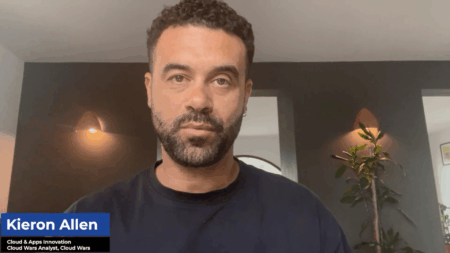
At the recent Workday Rising U.S. event in San Francisco, Bob Evans, Founder, Cloud Wars, interviewed Brad Haupt, Vice President of Supply Chain, Monument Health. They discussed the importance of an efficient supply chain for patient care and how Workday’s unified platform is helping Monument Health achieve these goals.
Evans kicked off the discussion by asking Haupt, who was a featured speaker at Workday Rising U.S., to provide a brief overview of Monument Health as an organization. “Monument Health [is] a health system in western South Dakota,” explains Haupt. “We’re pretty unique because we’re located a long distance from any competitor that can perform the same procedures that our doctors can do.
“My goal as a supply chain leader is to make sure we have the things so that our patients don’t have to travel those long distances to be cared for.”
Monument Health has been collaborating with Workday since 2016 across HR, supply chain, and finance. After rolling out Workday’s supply chain tools in 2019, Monument Health faced various challenges, some stemming from disruptions during the pandemic and others due to the organization’s isolated location. “The pandemic broke our supply chain globally,” says Haupt. “We still have to manage a lot of back orders [and] substitutes and Workday has been helping us to find ways to do that.”

AI Agent & Copilot Summit is an AI-first event to define opportunities, impact, and outcomes with Microsoft Copilot and agents. Building on its 2025 success, the 2026 event takes place March 17-19 in San Diego. Get more details.
How Supply Chain Impacts Patient Care
“Supply chain has a huge effect on patient care … from the emergency room to the surgery to the ICU, if we run out of one product that’s necessary to do that procedure, our physicians have to find a different way to treat that patient, which may be suboptimal for the doctor and the patient,” explains Haupt. “Communication is really key, and I think Workday has helped us really automate some of that and be able to communicate in an effective manner.
Regarding AI and Workday’s unified data and AI tools, Evans asks how Workday has helped Monument Health to leap into AI-driven processes. “We took, I think, 17 disparate systems and got rid of them when we moved to Workday to consolidate our data,” says Haupt.
He explains the importance of having that data for the over 190,000 items in Monument Health’s supply chain in one place and how Workday’s AI tools will help the company clean up that data efficiently. “Humans can’t do it,” says Haupt. “If we can program the computer to say, ‘go look here and put that information here for me and validate it before we do that’, then we can clean that data up even more than what we have today.
“And then the exciting part after that is, once you have the clean data, you give AI a clean data set. Our organization has patient information, financial information, supply chain information, and outcome information. It’s in two systems, easily accessible by AI to go in and look.”
“I really get excited about the future, being able to use those tools to advance our team further, being able to have cleaner data in the future,” continues Haupt.
Currently, the average cycle time to read, redline, and negotiate a supply contract at Monument Health is around eight hours total. With the introduction of Workday Contract Intelligence, powered by Evisort AI, Haupt hopes to reduce the time spent going back and forth with vendors working on redlining to seconds. “I love reading contracts, don’t get me wrong, but I’d rather spend four hours negotiating rather than four hours reading a contract because that’s the stuff I love to do,” says Haupt.
Talent Acquisition
Workday’s unified data platform is helping Monument Health to secure talent despite its isolated location. “I was sitting at a table with other health systems’ supply chain staff, and I actually went around the table and asked, if you had to find another job, would you look for a health system that used Workday and hands down, they’re like, ‘Yes, I wouldn’t even go to a hospital with another system’,” says Haupt.
“I think being an innovator, our location is really good, because we can have that innovation, and we can cycle things through and try them, and if they don’t work, we can step back, reevaluate, and move down another road with Workday.”
“Having these world-class surgeons that have worked all over the world … they want to come here and really develop their practice in our organization, is really exciting, but we can’t do it without the technology,” he concludes.
Ask Cloud Wars AI Agent about this analysis










